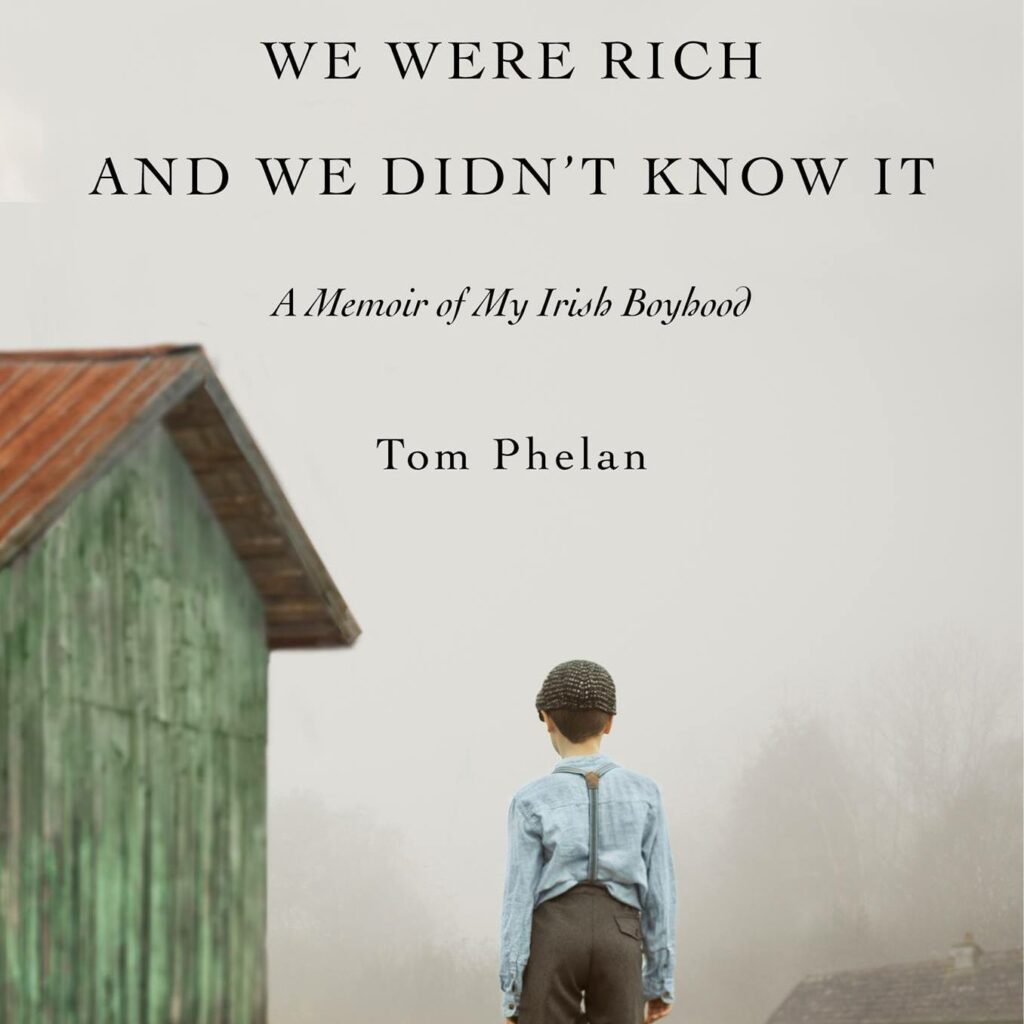Blog Post
We Were Rich and We Didn’t Know It: How To Find the Good Old Days
By Jonathon Van Maren
First published at Utopian Idiots.
In 1996, Irish American author Frank McCourt founded a new genre with his Pulitzer Prize-winning autobiography Angela’s Ashes: the “misery memoir.” He famously recounted his impoverished childhood in Limerick in sordid detail, recounting the scars of alcoholism, sibling death, and the Great Depression while lingering fondly over the lusts of adolescence and implicating others in his misdeeds (less famously, his account was strenuously objected to by many of those who knew him, including his mother). McCourt’s opening line sets the stage:
When I look back on my childhood I wonder how I survived at all. It was, of course, a miserable childhood: the happy childhood is hardly worth your while. Worse than the ordinary miserable childhood is the miserable Irish childhood, and worse yet is the miserable Irish Catholic childhood.
Unfortunately for those of McCourt’s contemporaries who beg to differ, he was a magnificent writer whose prose prompted a stream of pilgrimages to Limerick. I was recently there myself (although I didn’t visit any “McCourt sites”) and discovered that merely bringing up his name can provoke a vehement reaction. (“Proven liar” was the phrase used.)
Tom Phelan’s 2019 memoir We Were Rich and We Didn’t Know It, a recounting of his rural upbringing in County Laois in the 1940s and ‘50s, has already been compared to Angela’s Ashes, but is in many ways an answer to it. Phelan is McCourt’s equal as a prose stylist, but he is less inclined to wallow in the more squalid details and is far less fascinated by the urges that every young boy experiences in puberty that seemed to so occupy McCourt. Both memoirs recount a childhood before rural electrification, the telephone, and even indoor plumbing. Both record a time when the Catholic Church held enormous sway over every aspect of life. And both record a struggle for survival in times of crippling poverty.
To his portrait of a bygone era, however, Phelan brings wisdom and understanding. His father’s year-round backbreaking labor in the soil (and often mud) meant he could be impatient and occasionally explosive, but Phelan remembers “him as a man who loved his wife and children who at times was driven over the edge while trying desperately to take care of them.” His memories are not tinted by rose-colored glasses but by the love that the family had for one another—not always articulated, but almost always felt. Each chapter contains a single vignette from his childhood, and despite the honesty of these portraits, all are powerful reminders of how gratitude colors perspective.
His stories of farm life are not all about backbreaking labor—some are about the magic of new life. The story of his mother carefully raising hatchlings each year was particularly evocative—I’ve always felt that there is something wonderful about watching a hen with her new chicks, clucking her instructions, pointing out food bits with her beak (instantly followed by three or four peeping pecks at that precise spot), ruffling her feathers at night for her chicks to bury themselves deeply within. There is magic everywhere if you have the eyes to see it, and Phelan most certainly does. Poverty is the backdrop rather than the focal point of his memoir.
To be fair to McCourt, Phelan grew up within an intact family while Frank and his siblings were abandoned by their father. Phelan’s memoir was a reminder, once again, that the primary privilege any child can receive has nothing to do with pigmentation and everything to do with parents who stay together and pray together. Phelan recounts special moments with his father in the fields, on the farm, and taking the horse-drawn wagon to town. McCourt has no such memories, and perhaps if he had, his memoir might not have been so miserable. “Of course, the passing years have smoothed the jagged edges of the raw emotion of the times; no one can marinate in such agony for long,” Phelan wrote in his novel The Canal Bridge. McCourt would have begged to differ.
Everything you need to know about Phelan’s memoir is found in the title: We Were Rich and We Didn’t Know It. He is not only referring fondly to farm life; he is reminding us that time bears those we love away from us; that the only ‘good old days’ are here, and now, the ones we have—and that to recognize this demands a life lived with heartfelt gratitude. Certain passages reminded me of an observation from Patti Smith’s memoir: “We want things we cannot have. We seek to reclaim a certain moment, sound, sensation. I want to hear my mother’s voice. I want to see my children as children. Hands small, feet swift. Everything changes. Boy grown, father dead, daughter taller than me, weeping from a bad dream. Please stay forever, I say to the things I know. Don’t go. Don’t grow.”
A writer of Phelan’s calibre, at least, can recapture the things he knew and to linger there for just a moment longer. I suspect that’s why he wrote this memoir. Phelan captured what Laura Ingalls Wilder so beautifully described at the end of her first book, which she wrote to spend more time with her deceased father:
“When the fiddle had stopped singing Laura called out softly, “What are days of auld lang syne, Pa?”
“They are the days of a long time ago, Laura,” Pa said. “Go to sleep, now.”
But Laura lay awake a little while, listening to Pa’s fiddle softly playing and to the lonely sound of the wind in the Big Woods. She looked at Pa sitting on the bench by the hearth, the firelight gleaming on his brown hair and beard and glistening on the honey-brown fiddle. She looked at Ma, gently rocking and knitting. She thought to herself, “This is now.”
She was glad that the cozy house, and Pa and Ma and the firelight and the music, were now. They could not be forgotten, she thought, because now is now. It can never be a long time ago.








